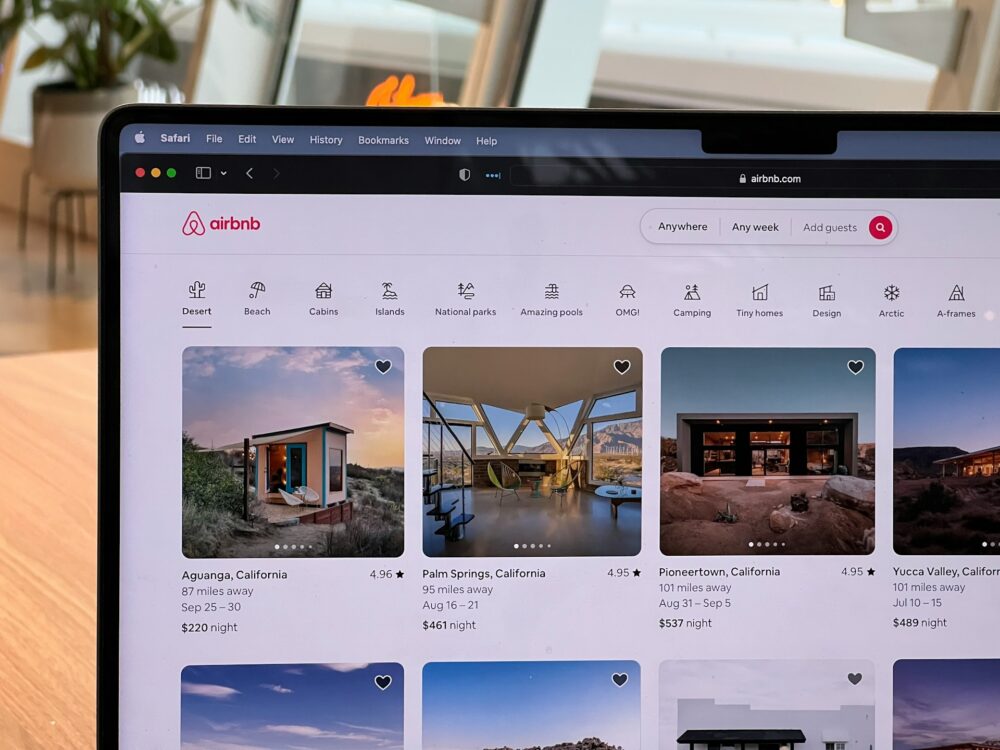Business
Airbnb Reacts to Regulatory Pressure on Tourist Apartments in Spain
Airbnb is urging Spanish officials to adopt nuanced regulations for short-term rentals, distinguishing professional hosts from occasional ones. It argues that restrictive measures harm competitiveness, fail to address housing shortages or mass tourism issues, and drive hotel prices higher. Airbnb proposes proportionate, data-driven rules and streamlined registration systems to support families, rural tourism, and Spain’s travel industry.

Airbnb, the tourist rental platform, is expanding its campaign against the regulatory pressure that various public administrations are directing at the core of its business.
After sending letters to the mayors of Madrid and Barcelona about the municipal regulations they have designed, the company has sent new letters to officials from both the central Executive (Tourism and Housing) and the autonomous governments of the Community of Madrid and the Generalitat of Catalonia, headed by Isabel Díaz Ayuso and Salvador Illa, respectively.
All of them, says Airbnb, are preparing a wave of new regulations that “aim to severely and unjustifiably restrict the activity of short-term rentals.” According to company sources, in these letters they demand that the regulations they plan to approve clearly distinguish between those “hosts” who are dedicated to the business professionally and those owners who sporadically rent out their first residence, a room or their summer house.
“The regulations must treat in a differentiated way the intensive and professional activity of those who occasionally rent a residential home,” explains the firm. “The occasional rental of a primary residence or a family holiday home provides extra income to families and does not affect the total supply of available housing,” they emphasize.
Airbnb also calls for consideration of the needs of rural destinations as opposed to urban ones
In this regard, Airbnb asks that the new regulations serve to “promote the dispersion of travel to new destinations and strengthen rural communities.”
On the other hand, they warn public officials that the new regulations being prepared ” harm Spain’s competitiveness as a travel destination for families “, arguing that traditional tourist accommodation “does not always satisfy all their needs”.
“Increasingly restrictive regulations on short-term rentals only lead to skyrocketing hotel prices and make Spanish destinations less competitive and affordable, especially for families who depend on these accommodations to be able to travel,” says Sara Rodríguez, head of public policies for Spain at Airbnb.
Airbnb accuses various regional governments of having approved in recent years “hastily restrictions on short-term rentals without reflecting on their repercussions.” In addition, they criticize that the measures adopted so far based on these policies “have not managed to solve the problems associated with mass tourism or the housing shortage, which served as justification for their implementation.”
Given that regulatory pressure on tourist apartments is going to be increasing, Airbnb has redoubled its efforts to ensure that the different regulations are not broad-brush, but much more selective. For this reason, the company is calling for “measures based on real activity data” and that they do not seek to “point to short-term rentals as the sole cause of the problems arising from mass tourism and the lack of housing.”
The Ministry of Housing, headed by Isabel Rodríguez, announced a few months ago that it would launch a single registry to put an end to fraud in short-term and seasonal rentals. In reality, this involves bringing forward a few months the implementation of a regulation imposed by the European Union.
Property owners will not be able to advertise their properties on digital platforms without a code that will be issued by the Property Registrars. “It will be impossible to market without a certificate stating that the property complies with regional regulations, municipal ordinances and neighbourhood statutes,” said the head of the department regarding the measure that will begin to be implemented in 2025.
Airbnb says it wants to work with the different governments in Spain “to alleviate the current housing crisis and fight mass tourism” and says it is open to “reasonable and effective” regulations. That is why it asks that they be made based on four principles. On the one hand, that the regulations be “proportionate and justified” and have scope “only in those areas where the need for regulation is demonstrated.”
Airbnb also calls for Spain to “have a registration system that is simple, online and harmonised.” The company says it already regularly shares data on the activities of hosts in Spain through Eurostat – and also with the tax authorities.
The company bases its package of proposals on a recent report commissioned by the consultancy firm PWC, which, among other things, points out that short-term rentals are having a minimal impact on the price and availability of housing in the country.
The study found that only 0.3% of the increase in housing prices over the last five years can be attributed to short-term rentals, compared to other limiting factors such as the shortage of new housing in relation to the annual creation of households or the 4 million empty houses, which represent nearly 15% of the total housing stock. Most of them, however, are where they are not needed, according to the Bank of Spain.
Airbnb says that stricter regulations against hosts – it cites Madrid, Barcelona, New York and Edinburgh – have not been effective in bringing homes back into the housing market. “Instead, they have led to a reduction in the accommodation options available to visitors, concentrating demand in fewer neighbourhoods and driving hotel prices to record levels,” the company points out. Meanwhile, “rent prices have reached historic highs and local families and businesses risk losing a vital source of income,” it concluded.
__
(Featured image by Oberon Copeland @veryinformed.com via Unsplash)
DISCLAIMER: This article was written by a third party contributor and does not reflect the opinion of Born2Invest, its management, staff or its associates. Please review our disclaimer for more information.
This article may include forward-looking statements. These forward-looking statements generally are identified by the words “believe,” “project,” “estimate,” “become,” “plan,” “will,” and similar expressions. These forward-looking statements involve known and unknown risks as well as uncertainties, including those discussed in the following cautionary statements and elsewhere in this article and on this site. Although the Company may believe that its expectations are based on reasonable assumptions, the actual results that the Company may achieve may differ materially from any forward-looking statements, which reflect the opinions of the management of the Company only as of the date hereof. Additionally, please make sure to read these important disclosures.
First published in EL INDEPENDIENTE. A third-party contributor translated and adapted the article from the original. In case of discrepancy, the original will prevail.
Although we made reasonable efforts to provide accurate translations, some parts may be incorrect. Born2Invest assumes no responsibility for errors, omissions or ambiguities in the translations provided on this website. Any person or entity relying on translated content does so at their own risk. Born2Invest is not responsible for losses caused by such reliance on the accuracy or reliability of translated information. If you wish to report an error or inaccuracy in the translation, we encourage you to contact us

-

 Crypto3 days ago
Crypto3 days agoCrypto Markets Under Pressure as Vitalik Buterin Sells 17,000 ETH
-

 Markets1 week ago
Markets1 week agoWeather-Driven Supply Outlook Lifts Coffee Markets in Brazil and Vietnam
-

 Business1 week ago
Business1 week agoTopRanked.io Weekly Affiliate Digest: What’s Hot in Affiliate Marketing [Best Technology Affiliate Programs]
-

 Business3 days ago
Business3 days ago2.5 Billion People Watch Quiz Shows Every Day. Masters of Trivia (MOT) Is Letting Them Compete
























